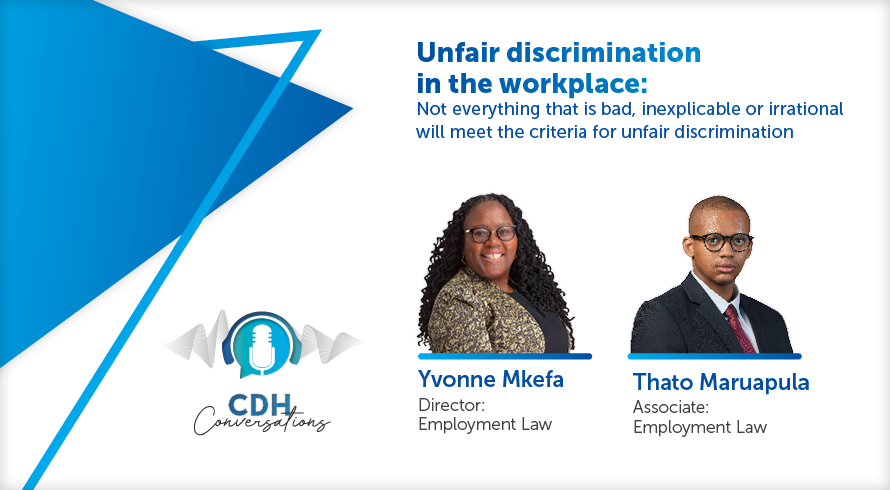High Court upholds the tax reality for Kenya’s private equity deal environment
At a glance
- The High Court’s judgment in ECP Kenya Limited v the Kenya Revenue Authority HCCOMMITA/E215/2023 will reshape discussions around how private equity funds will structure and exit investments in Kenya.
- Beyond immediate tax consequences, the Kenya Revenue Authority’s (KRA) reasoning highlights a broader regulatory trend. Investors should expect more detailed scrutiny of fund structures, management arrangements, intra-group contracts, and advisory mandates.
- Engaging the KRA early, through private rulings, can provide clarity on tax positions before closing transactions. This proactive approach can help avoid disputes and ensure that funds and its limited partners have a stable and predictable tax environment.
Background of the case
The dispute arose when the Kenya Revenue Authority (the KRA) issued a corporation tax assessment on the offshore disposal by ECP Africa Fund III PCC (the ECP Fund) of its 100% stake in Java House Mauritius Limited, which at the time owned 100% of Nairobi Java House Limited. The KRA asserted that the income from this offshore disposal was taxable in Kenya on the basis that ECP Fund was effectively managed by its US-based fund manager through ECP Kenya Limited (ECP Kenya). In the KRA’s view, this meant the gain from the disposal was Kenyan-sourced income. On this basis, the KRA concluded that the ECP Fund had a taxable presence in Kenya by virtue of having its place of effective management (POEM) in Kenya.
The TAT agreed, finding that ECP Kenya’s involvement in identifying opportunities, negotiating deals, monitoring performance and executing the exit constituted core fund-management activities. These functions were deemed sufficient to establish a permanent establishment for ECP Fund in Kenya, exposing the offshore gain to local taxation.
In interpreting the Kenyan Income Tax Act (the Income Tax Act), a permanent establishment arises where a non-resident, such as the ECP Fund, has a fixed place of business through which its operations are wholly or partly carried on. Beyond traditional physical locations such as offices, branches, factories, farms and warehouses, the definition also captures business activities that are directly relevant to PE operating models.
Kenya’s Income Tax Act recognises several permanent establishment triggering factors. For PE funds, the most relevant include:
- where a PE fund has a fixed place through which business is carried on, such as an office or place of management;
- where services, such as management or consultancy, are provided in Kenya for over 91 days in a 12-month period;
- where a Kenyan-based agent habitually concludes or materially drives the conclusion of contracts for the PE fund;
- where the PE fund directly owns and operates assets such as farms, warehouses or industrial facilities (this is uncommon but relevant where PE funds invest in agri-business or logistics platforms at the fund level); and
- where construction or installation activities extend beyond 183 days (this exposure can arise where a PE fund, rather than a portfolio company, undertakes project supervision).
In contrast, activities limited to market research, information gathering, or other auxiliary functions do not create a permanent establishment. Many PE funds rely on this exclusion to position Kenyan advisory entities as support-only operations.
Implications for PE funds
In upholding the TAT’s decision, the High Court has signalled to PE funds operating in Kenya that the KRA is increasingly focused on where substantive value-creation activities take place, rather than where holding companies or special purpose vehicles are incorporated. While the transaction in question occurred offshore, the KRA placed significant reliance on evidence showing that ECP Fund’s employees were involved in identifying opportunities, negotiating and structuring deals, monitoring the portfolio company, and preparing the exit. In the KRA’s view, these functions were integral to the ECP Fund’s business and sufficient to establish a taxable presence in Kenya. Some of the implications from this decision are outlined below.
Tax exposure
This approach expands the circumstances under which the KRA may assert taxing rights over gains realised in offshore exits. PE funds with Kenyan portfolio companies, particularly those that rely on regionally based teams, now face the risk that the KRA may treat offshore disposals as Kenyan-sourced income where local activity is deemed central to the creation of value. The KRA’s reasoning therefore heightens tax exposure for funds whose operational footprint in Kenya is substantial, even where their legal structures remain offshore.
Deal structuring
Historically, PE funds have used offshore special purpose vehicles, treaty jurisdictions and tax-neutral hubs to manage investor flows and preserve exit efficiency. The KRA’s emphasis on economic substance over legal form challenges these longstanding structuring norms. It suggests that Kenya may take a more expansive view of permanent establishment concepts, drawing not just from formal delegation of authority, but from the reality of day-to-day fund management. As a result, traditional structures may no longer guarantee insulation from Kenyan taxation, particularly where a local advisory or fund-management arm is involved in material decision-making.
Regulatory risk
Beyond immediate tax consequences, the KRA’s reasoning highlights a broader regulatory trend. Investors should expect more detailed scrutiny of fund structures, management arrangements, intra-group contracts and advisory mandates. Compliance obligations may become more burdensome, with increased expectations around board minutes, delegation frameworks, investment committee protocols and other documentation demonstrating where strategic control is exercised. The KRA’s growing focus on substance also raises the likelihood of audits and targeted inquiries, making robust governance essential.
Strategies for PE funds
In light of the High Court’s decision, PE funds can adopt several strategies to better manage and mitigate exposure to tax risks. Some of them include:
Substance planning
PE funds using offshore holding companies must ensure that these entities have demonstrable economic substance in their jurisdiction of incorporation. These include documenting board-level decision-making, maintaining some decision-makers in the jurisdiction, and ensuring that advisory roles performed in Kenya do not cross into effective management or control. The KRA’s analysis shows that job descriptions, employee roles and internal processes will be closely examined.
Advance rulings
Section 65 of the Tax Procedures Act, Cap 469B provides for binding private rulings. A private ruling will set out the KRA’s interpretation of a tax law in relation to a transaction entered into or proposed to be entered into. Engaging the KRA early, through private rulings, can provide clarity on tax positions before closing transactions. This proactive approach can help avoid disputes and ensure that funds and its limited partners have a stable and predictable tax environment. Taxpayers should carefully manage the application for rulings and engagement with the KRA.
Exit planning
Tax planning must become a central part of exit strategy formulation. PE funds should analyse potential tax outcomes across all structuring scenarios at the outset of the investment, not just at exit. Early planning allows funds to structure decision-making, advisory functions and value-creation processes in a way that mitigates tax exposure.
Compliance framework
A strengthened compliance framework, covering reporting, record-keeping, governance, and internal controls, is crucial. PE funds should implement systems that clearly delineate responsibilities between local advisory teams and offshore decision-makers, supported by robust documentation to withstand scrutiny.
Looking ahead
Although the Court of Appeal may refine or overturn aspects of this decision if ECP Kenya appeals, the broader trend is clear. Kenya, like many jurisdictions globally implementing the OECD/G20 Inclusive Framework on Base Erosion and Profit Shifting, is taking a more assertive stance on taxing value created within its borders. That framework aims to ensure that multinational enterprises pay taxes in countries where economic activity and value creation occur rather than where they declare profits. This decision aligns with a regional movement toward tighter enforcement and a global shift toward substance-based taxation and anti-avoidance principles.
The relevance of substance-based taxation was seen in M-Kopa Holdings c/o Morre, Director, Mkopa Kenya Limited LLC v Commissioner of Legal Services and Board Co-ordination [2024] KETAT 1238 (KLR) (the M-Kopa Case). The High Court in the M-Kopa Case reiterated the definition of POEM being where the company is actually managed and put another way, where the key management and commercial decisions that are necessary for the conduct of the entity‘s business are in substance made. The High Court went on to clarify that POEM, test is one of substance over form. It therefore requires a determination of those persons in a company who actually “call the shots” and exercise “realistic positive management”.
Ultimately, the key lesson for PE funds is that predictability, robust documentation and proactive tax planning are critical to preserving deal value, maintaining investor confidence and sustaining long-term investment momentum in Kenya’s private capital market.
Recommended actions
To safeguard returns and reduce regulatory risk, PE funds should:
- strengthen economic substance in offshore holding structures by documenting offshore decision-making, ensuring board functions occur in the relevant jurisdiction, and clearly separating Kenyan advisory roles from fund management or control;
- engage the KRA early by seeking binding private rulings to obtain certainty on tax treatment before entering or exiting investments;
- incorporate Kenyan tax considerations into exit planning at the outset of the investment cycle, ensuring structuring, decision-making flows and value-creation activities do not inadvertently shift management or control into Kenya;
- strengthen governance, reporting, record-keeping and role-delineation systems to demonstrate alignment between the operational reality and legal structure, and to withstand potential audits;
- conduct immediate structural reviews of all current and legacy holding arrangements to identify vulnerabilities in light of the KRA’s approach;
- evaluate deal pipelines to determine whether upcoming acquisitions, restructurings or exits could trigger similar tax exposure; and
- engage tax and legal advisors to explore restructuring options, strengthen substance documentation and prepare for potential audit from the KRA.
The information and material published on this website is provided for general purposes only and does not constitute legal advice. We make every effort to ensure that the content is updated regularly and to offer the most current and accurate information. Please consult one of our lawyers on any specific legal problem or matter. We accept no responsibility for any loss or damage, whether direct or consequential, which may arise from reliance on the information contained in these pages. Please refer to our full terms and conditions. Copyright © 2026 Cliffe Dekker Hofmeyr. All rights reserved. For permission to reproduce an article or publication, please contact us cliffedekkerhofmeyr@cdhlegal.com.
Subscribe
We support our clients’ strategic and operational needs by offering innovative, integrated and high quality thought leadership. To stay up to date on the latest legal developments that may potentially impact your business, subscribe to our alerts, seminar and webinar invitations.
Subscribe




